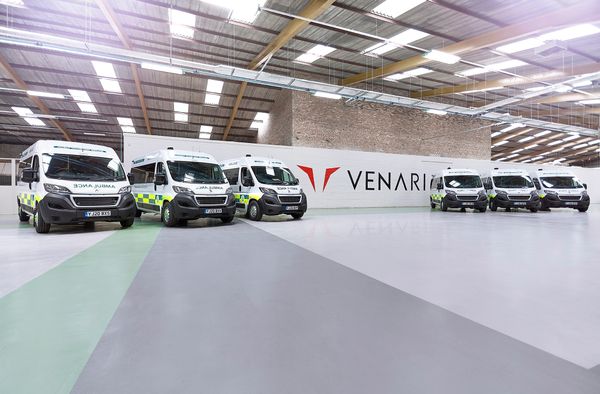West Yorkshire manufacturer steps up to support region’s emergency services





An emergency vehicle manufacturer in West Yorkshire has stepped up to support the region’s emergency services during the coronavirus pandemic. Its efforts have been acknowledged in a letter from Yorkshire Ambulance Service, in which it was praised for ‘delivering such a valuable service during an increasingly challenging situation’.
Venari Group, based in Brighouse, is a vehicle manufacturer, specialising in the build of ambulances, patient transport vehicles and fire trucks.
The organisation’s 60,000 sq. ft. facility – which opened in March – is now being utilised as a base to manufacture Yorkshire Ambulance Service’s (YAS) front-line vehicles and fire service brigade cars being used for relief efforts. A small team of fewer than 20 experienced production staff have been working six days a week to support frontline emergency workers.
It is continuing apace with the production of ambulances which will be used throughout Yorkshire. The large shop floor allows staff to work 4-5m apart, whilst wearing specific PPE to ensure maximum safety for workers.
The increase in production comes at a time when the emergency services need support from manufacturers more than ever. Venari Group is one of very few emergency vehicle manufacturers in the UK to remain open.
The firm’s dedication has been acknowledged in a letter from YAS, in which the Trust expressed its gratitude to Venari’s key workers for delivering a ‘valuable service’ which was described as being ‘at the forefront of their ability to continue providing a service to patients’.
Speaking about the firm’s ramped up production, CEO Oliver North, said: “As soon as we saw the increased challenges faced by the NHS, we were all intent on fulfilling our obligations to ensure we could at least do ‘our bit’ to assist their huge task.
“Usually, when we deliver an ambulance, there is a natural feeling of pride knowing it will go on to play its part in saving lives. Now, the feeling has been hugely intensified, with the feeling that we’re supporting our incredible NHS in their toughest fight in modern times.
“With a larger footprint at HQ, we have been able to maintain large distances between production staff without compromising safety. We have added air purifying systems into common areas in headquarters, using the latest photocatalytic oxidisation techniques, ensuring the air quality is as clean as it can possibly be. Administrative staff are working efficiently from home.
“We are of course feeling supply chain constraints which impact the flow of production which would make the option of closing, an easy one. But we won’t, because we have an obligation – we support the NHS in more ‘routine’ times, and we will continue to support them through their hardest times.”